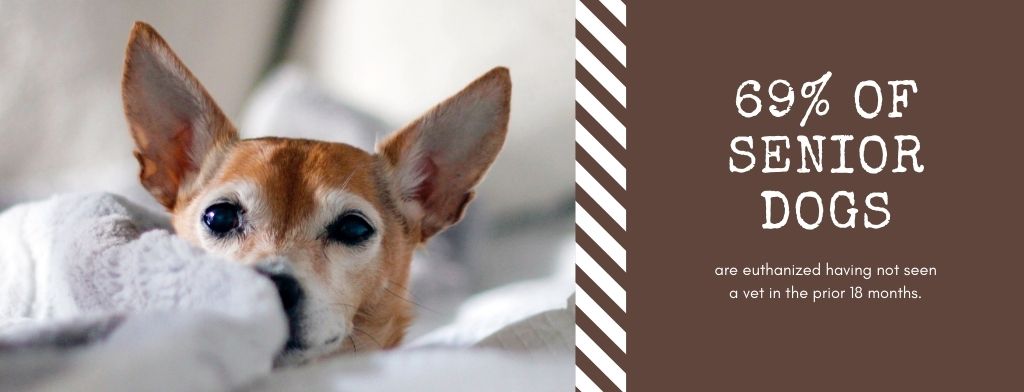
Promoting geriatric pet care in the vet practice
The advancements in veterinary medicine have created a rise in geriatric patients. As a profession, veterinarians have the opportunity to adapt their practice to suit the aging pet population. By offering a holistic approach to geriatric care, veterinary teams can partner with pet owners to navigate the aging process and give their pets the best chance of a long and healthy life.
The geriatric life stage represents the last 10% of the expected life expectancy. The rate of aging is dependant on the pet's genes, lifestyle, nutrition, environment, disease, and previous traumas. The most obvious signs of deterioration for the pet owner are those related to the pet's behavior.
Unfortunately, many pet owners think that the problems associated with geriatric pets are a normal part of aging. In fact, a study done in the USA by VetSuccess looked into vet visits prior to euthanasia and found that only 23% of cats and 31% of dogs were seen by a vet within 18 months of being euthanized. This demonstrates the unnecessary suffering and missed opportunities for many of these pets to have a comfortable end-of-life experience. Promoting geriatric care and the options available to pet owners will help change this trend. The key to caring for a geriatric pet is maximizing their care and abilities during its reduced awake times and keeping up regular veterinary checks so any problems can be detected early.

Goals of geriatric care in the practice:
- To enhance the quality of life for pets
- To empower pet owners to attend to the changing needs of their geriatric pets
- For early detection of disease to give the best chance of successful management
Bi-annual geriatric veterinary visits can be individualized to meet these goals of a geriatric pet visit. A senior pet health questionnaire is a useful tool to share with pet owners prior to visits. This way the veterinarian can obtain a thorough history and a focus to be able to meet the client's expectations of the visit.
The geriatric visit may include:
- Full physical examination
- Orthopedic and mobility work up
- Vaccinations
- Diagnostic testing - blood tests (including thyroid levels), antibody titers, and urine/fecal tests)
- Blood pressure assessment
- Review of any lumps and bumps
- Assessment of pet's weight
- Behavioral history
- Vision assessment
Welcoming geriatrics to the practice
Creating a calm and welcoming environment for geriatrics is good practice. Geriatric pets are prone to stress, they are often hard of hearing and sight, and are less mobile.
Here are some tips for welcoming geriatrics:
- Dedicated parking closer to the practice entrance
- Placing non-slip mats on the practice floors
- Seeing these pets as a priority and reducing waiting times
- Using digital health questionnaires to obtain detailed histories to reduce history-taking time in the consultation
Related article: How to use pre-consultation tools
Increasing the awareness of geriatric care
Sharing handouts of geriatric home care and the options available for geriatrics will help pet owners understand the changes that their pet is experiencing and help them to adapt to these. When the time arrives, sharing information on end-of-life and interactive quality of life tools will ensure that pets do not endure unnecessary suffering.
Key education opportunities include:
- Cognitivive dysfunction
- Arthritis
- Weight gain/loss
- Early detection of disease and cancer
- Pain assessments
- End-of-life care
Setting up geriatric programs in the practice
Here are some ideas to implement in the practice:
- Segment your client database by dogs over 10 years of age and cats over 12 years of age that you haven't seen in 6 months.
- Set up reminders every 6 months to check in on these pets
- Enrol pet owners into senior care health programs that drip feed tips and education over a few months
- Run nurse clinics between vet visits for senior health checks - weight, mobility, and behavior assessments
Related article: How to run nurse clinics
Using VetCheck to support your geriatric care in the vet practice.
- Quality of life scales - Interactive tool
- Arthritis - Home care program
- Senior care program
- Geriatric care - behavioral problems
- End-of-life care
- Palliative care
- When it's time to say goodbye
There are over 2000 VetCheck templates that also help veterinary teams save time in explaining treatment options, duration of treatment, potential outcomes and prognoses.